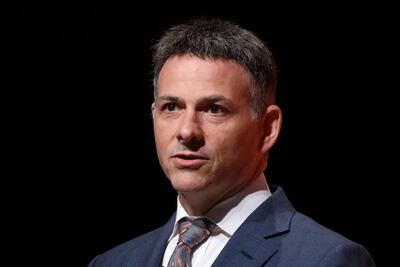A delicatessen that generated less than $14,000 in sales from a single site last year but which has a market capitalisation of more than $100 million has been highlighted by the head of a $1.6bn hedge fund as an example of the lack of oversight of US markets.
Hometown International owns the Your Hometown Deli store in Paulsboro, New Jersey, which was closed for six months last year due to Covid-19 restrictions but has only generated $35,748 in sales over its last two years of trading. Despite this, it had a market cap of $113 million on February 8, David Einhorn of Greenlight Capital said in a letter to investors.
"The largest shareholder is also the CEO/CFO/Treasurer and a director, who also happens to be the wrestling coach of the high school next door to the deli. The pastrami must be amazing," Mr Einhorn said.
Hometown International was founded in 2014 and its deli opened in October 2015. The company ran up losses of $624,438 last year but increased its cash pile by issuing $2.5m worth of new shares. The company's share price has increased more than four-fold over the past 12 months, giving it a market cap of at $101.3m as of Friday.
A former lawyer, Greg Jaclin, who was barred after pleading guilty to shell company scams, was listed as an attorney in early company filings, CNBC reported on Saturday.
"For the most part, quasi-anarchy appears to rule in markets," Mr Einhorn said.
"Strange things happen to all kinds of stocks. Last year, on one day in June the stocks of about a dozen bankrupt companies roughly doubled on enormous volume. Recently, The Wall Street Journal reported a boom in penny stocks."
Small investors "who get sucked into these situations" are likely to be the ones that suffer the most harm from market manipulation, "yet the regulators – who are supposed to be protecting investors – appear to be neither present nor curious", Mr Einhorn said.
"From a traditional perspective, the market is fractured and possibly in the process of breaking completely."

US stock markets have continued to hit new highs since the Federal Reserve and the US government began pumping trillions of dollars of fiscal stimulus into the economy since March last year in response to the Covid-19 pandemic.
Despite a slump in markets in March last year, the S&P500 index closed up about 15.8 per cent in 2020 and has gained a further 11.4 per cent so far this year.


